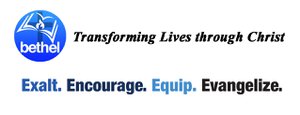Do you ever feel like portions of your life seem unimportant or meaningless? This Sunday Michael cautions us against taking our circumstances for granted with regards to what God has prepared for us in Christ Jesus.
 Then Pharaoh gave Joseph an Egyptian name, Zaphenath-paneah, and arranged for him to marry an Egyptian woman, Asenath (daughter of Potiphera, priest of On). So this was how Joseph gained authority over all the land of Egypt. Genesis 41:45 The Voice (VOICE)
Then Pharaoh gave Joseph an Egyptian name, Zaphenath-paneah, and arranged for him to marry an Egyptian woman, Asenath (daughter of Potiphera, priest of On). So this was how Joseph gained authority over all the land of Egypt. Genesis 41:45 The Voice (VOICE)Moses
A snapshot of the first forty years of Moses' life: in the palace, but not belonging; grandson of the King, but relating more to the peasants; access to extreme power, but a heart that breaks for the least of these. He was certainly in a very precarious situation: being adopted into the very family that was attempting to kill him and his native people. Somehow still the first forty years of Moses' life were not a waste. Even the next forty years, where he lived in comparative isolation and distanced himself from all he ever knew, were also part of God's divine plan to rescue the Hebrew people from the chains of their bondage.
 God has done what He promised to Abraham, Isaac, and Jacob: He has made Israel’s children fertile, productive, and strong. Over time Jacob’s 70 children have become a nation within a nation, and the Egyptians are taking notice. History teaches the Pharaohs and the ruling classes to be wary of outsiders. So now that the Israelites are swarming all over the land like flies, and they are not fully assimilating into Egyptian life and culture, the Pharaoh thinks they pose a clear and present danger. So the Egyptian king decides that strong measures are necessary. The welcome that Joseph and his family once enjoyed turns into outright hostility. Pharaoh wants the boys dead because he knows they may grow up to fight against him, but he wants the girls to live. He is sure he can find a use for them. One day a man and woman—both from the tribe of Levi—married. She became pregnant and gave birth to a son. When she saw that her son was healthy and beautiful, she feared for his safety; so she kept him hidden from view for three whole months. When she could no longer keep him hidden away, she took a basket made of reeds, sealed it with tar and pitch, and placed her baby boy in it. Then she wedged the basket among the reeds along the edge of the Nile River. The Hebrew word for the “basket” that Moses’ mother prepared is the word used in Genesis 6:14 for the “ark” that preserves Noah and his family from a watery judgment. All the while, the child’s sister watched from a distance to see what might happen to her baby brother. Later on Pharaoh’s daughter came down to bathe in the river while her young attendants walked along the bank nearby. Pharaoh’s daughter noticed the basket wedged among the reeds and wondered what it might contain. So she instructed her maid to bring it to her. When Pharaoh’s daughter opened the basket, she found the baby boy. He was crying, and her heart melted with compassion. Pharaoh’s Daughter: This is a Hebrew child. Child’s Sister (coming out of her hiding place): Would you like me to find a Hebrew woman to nurse the child for you? Pharaoh’s Daughter: All right. Go find a nurse. So the baby’s sister went and fetched his mother. The boy’s mother approached Pharaoh’s daughter. Pharaoh’s Daughter (to the nurse): Here! Take this child and nurse him for me, and I will pay you for your services. So the woman took the child—who was secretly her own son—and nursed him just as Pharaoh’s daughter had instructed. This child is destined for greatness. Powerful people want him dead; instead, Providence intervenes. The boy grew, and when the time was right, the woman brought him to Pharaoh’s daughter, and she adopted him as her own. She named him Moses because, as she explained, “I took him out of the water.” Years later, when Moses had grown up, he went out to observe his people—the Hebrews—and he witnessed the heavy burden of labor forced upon them. He also witnessed an Egyptian beating one of his Hebrew brothers. He looked around to see if anyone was watching but there was no one in sight, so he beat the Egyptian just as the Egyptian had beaten the Hebrew. Moses ended up killing the Egyptian and hid the dead body in the sand. He went out again the next day and saw two of his Hebrew brothers fighting with each other. Moses confronted the offender. Moses: Why are you hitting your friend? Offender: Who made you our prince and judge? Are you going to kill me as you did the Egyptian yesterday? Fear immediately gripped Moses. Moses (to himself): The news of what I did must have spread. I must get out of here quickly. Moses was right. When the news reached Pharaoh, he sought to have Moses killed. But Moses ran away from Pharaoh until he reached the land of Midian. There he sat down beside a well. Exodus 2:1-15 The Voice (VOICE)
God has done what He promised to Abraham, Isaac, and Jacob: He has made Israel’s children fertile, productive, and strong. Over time Jacob’s 70 children have become a nation within a nation, and the Egyptians are taking notice. History teaches the Pharaohs and the ruling classes to be wary of outsiders. So now that the Israelites are swarming all over the land like flies, and they are not fully assimilating into Egyptian life and culture, the Pharaoh thinks they pose a clear and present danger. So the Egyptian king decides that strong measures are necessary. The welcome that Joseph and his family once enjoyed turns into outright hostility. Pharaoh wants the boys dead because he knows they may grow up to fight against him, but he wants the girls to live. He is sure he can find a use for them. One day a man and woman—both from the tribe of Levi—married. She became pregnant and gave birth to a son. When she saw that her son was healthy and beautiful, she feared for his safety; so she kept him hidden from view for three whole months. When she could no longer keep him hidden away, she took a basket made of reeds, sealed it with tar and pitch, and placed her baby boy in it. Then she wedged the basket among the reeds along the edge of the Nile River. The Hebrew word for the “basket” that Moses’ mother prepared is the word used in Genesis 6:14 for the “ark” that preserves Noah and his family from a watery judgment. All the while, the child’s sister watched from a distance to see what might happen to her baby brother. Later on Pharaoh’s daughter came down to bathe in the river while her young attendants walked along the bank nearby. Pharaoh’s daughter noticed the basket wedged among the reeds and wondered what it might contain. So she instructed her maid to bring it to her. When Pharaoh’s daughter opened the basket, she found the baby boy. He was crying, and her heart melted with compassion. Pharaoh’s Daughter: This is a Hebrew child. Child’s Sister (coming out of her hiding place): Would you like me to find a Hebrew woman to nurse the child for you? Pharaoh’s Daughter: All right. Go find a nurse. So the baby’s sister went and fetched his mother. The boy’s mother approached Pharaoh’s daughter. Pharaoh’s Daughter (to the nurse): Here! Take this child and nurse him for me, and I will pay you for your services. So the woman took the child—who was secretly her own son—and nursed him just as Pharaoh’s daughter had instructed. This child is destined for greatness. Powerful people want him dead; instead, Providence intervenes. The boy grew, and when the time was right, the woman brought him to Pharaoh’s daughter, and she adopted him as her own. She named him Moses because, as she explained, “I took him out of the water.” Years later, when Moses had grown up, he went out to observe his people—the Hebrews—and he witnessed the heavy burden of labor forced upon them. He also witnessed an Egyptian beating one of his Hebrew brothers. He looked around to see if anyone was watching but there was no one in sight, so he beat the Egyptian just as the Egyptian had beaten the Hebrew. Moses ended up killing the Egyptian and hid the dead body in the sand. He went out again the next day and saw two of his Hebrew brothers fighting with each other. Moses confronted the offender. Moses: Why are you hitting your friend? Offender: Who made you our prince and judge? Are you going to kill me as you did the Egyptian yesterday? Fear immediately gripped Moses. Moses (to himself): The news of what I did must have spread. I must get out of here quickly. Moses was right. When the news reached Pharaoh, he sought to have Moses killed. But Moses ran away from Pharaoh until he reached the land of Midian. There he sat down beside a well. Exodus 2:1-15 The Voice (VOICE)Joseph
Joseph too had a tumultuous journey after being extremely favored as a child. With no change in his identity from God's perspective, he would undergo a dramatic identity shift in natural eyes as He was promoted to save multitudes seven years before a terrible seven-year famine. He was positioned to accept this responsibility because of all he had gone through and the humility he demonstrated through the displays of God's Spirit. Joseph is a messianic foreshadow of Jesus Christ Himself.
 False liberators and prophets will pop up like weeds, and they will work signs and perform miracles that would entice even God’s chosen people, if that were possible. So be alert, and remember how I have warned you. Mark 13:22-23 The Voice (VOICE)
False liberators and prophets will pop up like weeds, and they will work signs and perform miracles that would entice even God’s chosen people, if that were possible. So be alert, and remember how I have warned you. Mark 13:22-23 The Voice (VOICE)Jesus' Invitation
Today, accepting the open invitation of Jesus Christ's call assumes an identity shift. What brings us to this point may look extremely different from each other, but it's important not to question each detail along the way. Difficult things that we've experienced or were born into all equip us to relate and reach people who have had those similar stories. God's call is consistent, and He will set you up with specific assignments based on your natural gifting and life experiences. Do not fear the evil in the world. Evil power does exist, but the available, incredible power in Jesus Christ freely invites every believer to conquer evil strongholds in personal victory!
Push into His presence in a deeper way this week! You will be surprised the difference in your experience with God when you connect with a Spirit-filled community to encourage you and spur you on when things get difficult. The Holy Spirit is moving around the world, and we are preparing for a great local move of His Holy Spirit here in Durham before Jesus's soon return.
God's Word is both timeless and powerful today!
We hope that you will consider this week's message in greater depth in the days ahead and meditate on God's Word in the attached pdf outline.
You can find the sermon and all resource attachments by clicking here.
Want to add a comment? Click here to add your voice to the conversation

